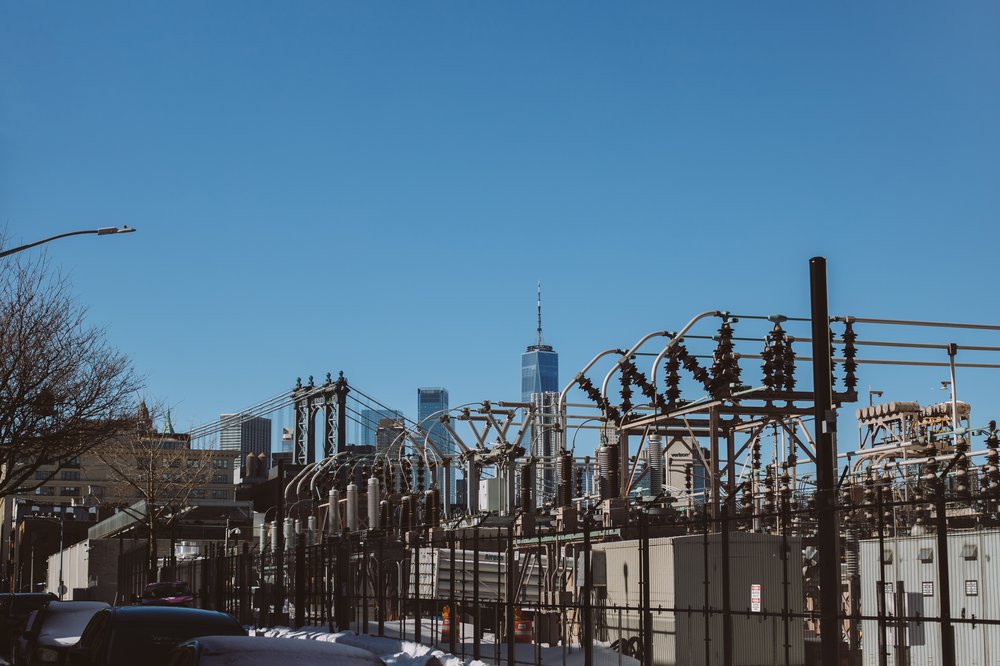Con Ed floats a double-digit hike in NYC's utility rates amid soaring energy costs
Feb. 1, 2025, 3:25 p.m.
Consumer and environmental advocates say New Yorkers are already struggling to pay the bills.

New Yorkers could soon see their already soaring energy bills jump by double-digit percentages as Con Edison pushes to hike its rates next year.
The energy giant is seeking state approval for a proposal that includes increasing customers’ electric bills by an average of 11.4% and gas bills by 13.3% starting on Jan. 1, 2026.
The utility giant, which provides almost all of the city’s electricity, said the extra chunk of change will help it expand and maintain its existing infrastructure. But as New York City continues to endure extreme weather events and an affordability crisis, the proposal has already sparked friction since its release on Friday.
“Con Edison has already received a huge increase in revenue from ratepayers that are struggling with their monthly bills and we need to make sure that they are actually prioritizing New Yorkers,” said Kim Fraczek, head of the clean energy group, the Sane Energy Project.
Con Ed said the increases could yield more than $2 billion in combined revenue, which it will use to build out its infrastructure for ever increasing demand and extreme weather events.
The proposed plan "will support critical work and investments in reliability, resiliency and clean energy infrastructure to meet the high expectations of our customers, who depend on us to deliver the most reliable electric service in the nation,” Con Ed President Matthew Ketschke said in a statement.
The proposal includes a clean energy hub in Brooklyn, a substation complex in Queens and a pilot electrification program for multi-unit buildings. Con Ed also said it plans to reinforce its infrastructure in the event of another climate disaster, including storms and heat waves.
A report last month found that utility bills have already been on the rise for years: Every major gas utility in the state has been able to hike prices since 2022, according to the Alliance for a Green Economy. If the state approves the electricity rates, most residential customers in the city will see their average bill go from about $103.24 a month to $117.37, according to Con Ed. Larger dwellings, which account for about 15 percent of customers, would see bills go from about $200 a month to $220.
Extreme heat in the summer and arctic temperatures this winter are some of the factors driving higher energy prices. Con Edison typically doesn’t produce power so it has no control over the cost of energy, but it does control its own delivery rates.
The company also pays property taxes to the city and state on its infrastructure and is consistently listed as the city's top property taxpayer. Con Ed said this week that it wants to send some of its estimated $3.2 billion property tax bill — paid by New Yorkers through their utility bills — back to low-income customers.
Those taxes, as well as utility rates, are ultimately set by the state. Gov. Kathy Hochul’s office said it would pay close attention to Con Ed’s proposal.
“The governor strongly opposes any effort to increase the cost of living for New Yorkers and is directing the Department of Public Service to thoroughly scrutinize the request by Con Edison to raise utility bills,” said Paul DeMichele, a spokesperson for the governor’s office.
James Denn, a spokesperson for the state Public Service Commission which ultimately decides on rates, said proposed increases normally get knocked down during the state “rate case” — a monthslong process where regulators, along with a variety of business, consumer and environmental groups weigh in on the proposal.
“Nothing about a utility’s rate case is taken for granted or assumed,” Denn said.
The closure of the Indian Point nuclear plant in 2021 — led by then-Gov. Andrew Cuomo and advocates including Robert F. Kennedy Jr. — also resulted in increased demand and costs for natural gas-powered electricity in New York City.
Liz Moran, a policy advocate at Earthjustice, said the state must accelerate its transition away from fossil fuels to renewable energy and stop relying on volatile natural gas prices.
“Everyone will benefit by New York state moving away from this system and allowing New Yorkers to pursue cheaper, cleaner alternatives,” Moran said.
This story has been updated with more information regarding bill impacts from Con Ed.
New Yorkers are getting burned by heating costs as gas bills soar, report says